
Palanga Beach: Lithuania's Coastal Gem
Nestled along the Baltic Sea, Palanga Beach is the crown jewel of Lithuania's coastline. Known for its golden sands and clear waters, this beach is a perfect destination for those seeking relaxation and fun. The beach stretches for 18 kilometers, offering plenty of space for sunbathing, swimming, and beach sports. The gentle waves make it a family-friendly spot, ideal for children and adults alike. Beyond the beach, Palanga is a vibrant town with a rich history and culture. The Palanga Amber Museum, housed in a beautiful 19th-century mansion, showcases Lithuania's famed amber. Visitors can stroll through the surrounding Botanical Garden, a peaceful retreat filled with exotic plants and serene ponds. The lively Basanavicius Street is the town's main artery, lined with cafes, restaurants, and shops, making it a perfect spot for a leisurely evening. For nature lovers, Palanga offers more than just the beach. The nearby Birutė Hill and Pinewood Park provide scenic walking trails and breathtaking views. The sunsets at Palanga Beach are legendary, painting the sky in hues of orange and pink. Whether you're looking to unwind, explore, or enjoy local cuisine, Palanga Beach has something to offer every traveler.
Local tips in Palanga Beach
- Visit early in the morning to secure a good spot on the beach and avoid crowds.
- Don't miss the Palanga Amber Museum for a unique insight into the region's history.
- Basanavicius Street is the best spot for dining and shopping, especially in the evening.
- Bring a light jacket; evenings can get chilly, even during summer.
- Sunsets are best viewed from the Palanga Pier; arrive early to grab a good spot.
Palanga Beach: Lithuania's Coastal Gem
Nestled along the Baltic Sea, Palanga Beach is the crown jewel of Lithuania's coastline. Known for its golden sands and clear waters, this beach is a perfect destination for those seeking relaxation and fun. The beach stretches for 18 kilometers, offering plenty of space for sunbathing, swimming, and beach sports. The gentle waves make it a family-friendly spot, ideal for children and adults alike. Beyond the beach, Palanga is a vibrant town with a rich history and culture. The Palanga Amber Museum, housed in a beautiful 19th-century mansion, showcases Lithuania's famed amber. Visitors can stroll through the surrounding Botanical Garden, a peaceful retreat filled with exotic plants and serene ponds. The lively Basanavicius Street is the town's main artery, lined with cafes, restaurants, and shops, making it a perfect spot for a leisurely evening. For nature lovers, Palanga offers more than just the beach. The nearby Birutė Hill and Pinewood Park provide scenic walking trails and breathtaking views. The sunsets at Palanga Beach are legendary, painting the sky in hues of orange and pink. Whether you're looking to unwind, explore, or enjoy local cuisine, Palanga Beach has something to offer every traveler.
When is the best time to go to Palanga Beach?
Iconic landmarks you can’t miss
Lithuanian Sea Museum
Explore the captivating maritime heritage of Lithuania at the Lithuanian Sea Museum in Klaipėda, a perfect blend of education and nature.
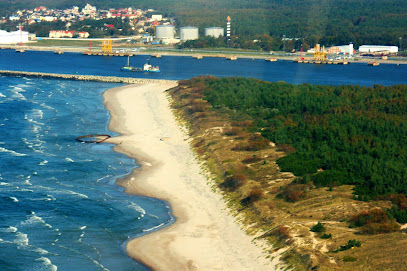
Palangos gintaro muziejus
Explore the captivating world of amber at Palanga Amber Museum, a serene cultural haven showcasing Lithuania's natural treasures and artistic heritage.
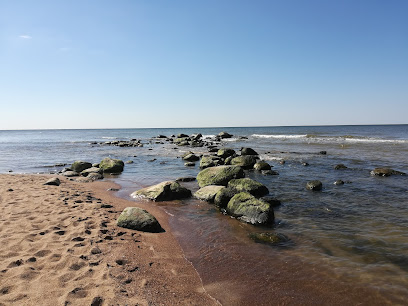
Monkey Bridge
Discover the Monkey Bridge in Palanga: a picturesque tourist attraction blending nature and art, perfect for memorable walks and stunning views.
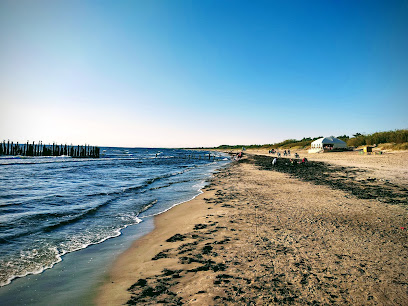
A-petit
Experience the flavors of Lithuania at A-petit, a cozy restaurant in Palanga offering delightful local dishes and exceptional service.
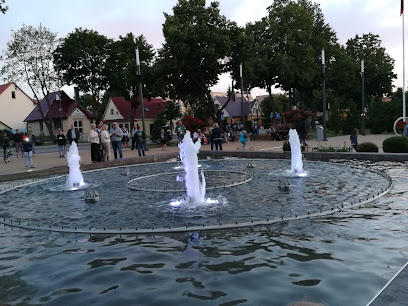
Melnrage Beach
Discover the serene beauty of Melnrage Beach in Klaipeda, where golden sands meet the tranquil Baltic Sea, perfect for relaxation and fun.
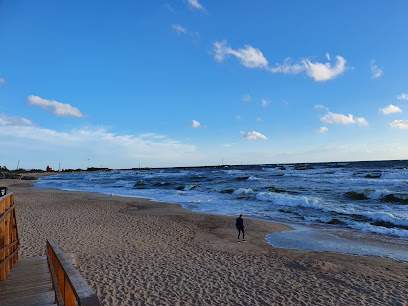
Žaidimų aikštelė
Experience the ultimate family adventure at Žaidimų Aikštelė, Palanga's beloved playground, where fun, safety, and creativity come together.
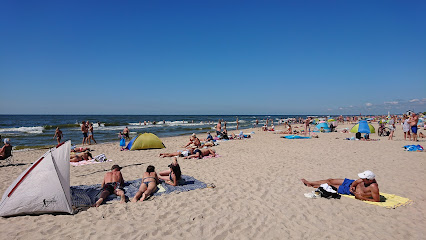
Palanga Pier
Discover the breathtaking beauty of Palanga Pier, a stunning bridge offering vibrant coastal views and a lively atmosphere in Lithuania.
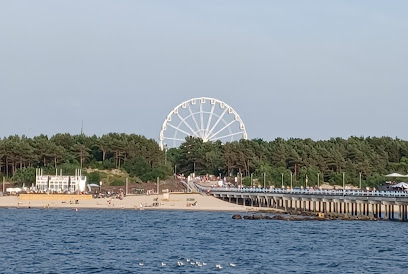
Vandenis
Experience the best of Palanga at Vandenis, where exquisite flavors meet live music in a warm and inviting atmosphere.
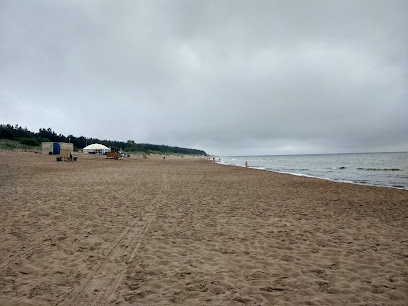
Palangos miesto botanikos parkas
Explore the lush tranquility of Palangos Miesto Botanikos Parkas, a botanical paradise in Palanga, Lithuania, perfect for nature lovers and peaceful retreats.
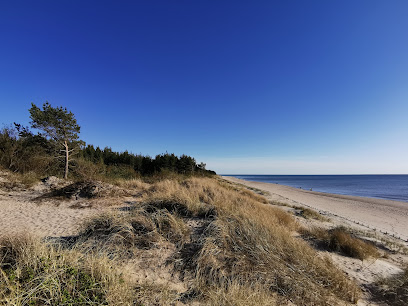
Birutė Hill
Explore Birutė Hill in Palanga, Lithuania: a perfect blend of history, nature, and stunning Baltic Sea views.
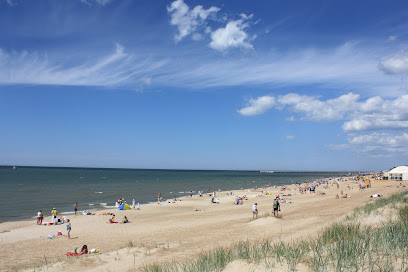
Jūratė ir Kastytis
Explore the legendary love story of Jūratė and Kastytis at this iconic sculpture in Palanga, a perfect blend of art, folklore, and coastal beauty.
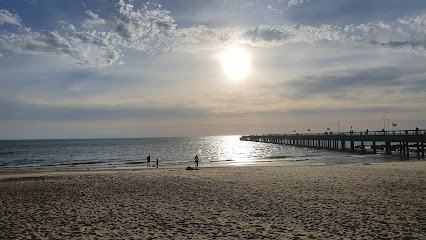
Restoranas Žuvinė
Discover the flavors of the Baltic at Restoranas Žuvinė, a premier seafood restaurant in Palanga, where every meal is a celebration of local cuisine.
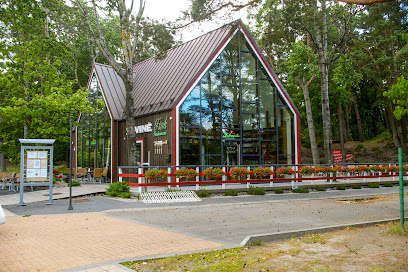
Palanga sahili
Experience the beauty of Palanga Beach, a vibrant seaside destination with golden sands, water sports, and cultural attractions along Lithuania's stunning coast.
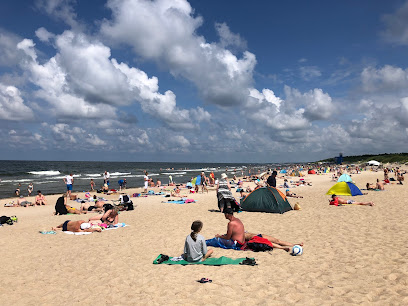
Pajurio zibintas
Discover the authentic flavors of Lithuania at Pajurio Zibintas, a must-visit restaurant in the heart of Palanga, perfect for food enthusiasts and travelers.
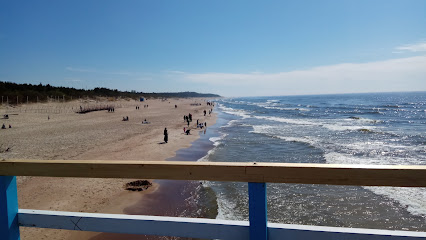
Grand Baltic Dunes
Discover the luxury and tranquility of Grand Baltic Dunes in Palanga, Lithuania - a perfect getaway for relaxation and adventure.
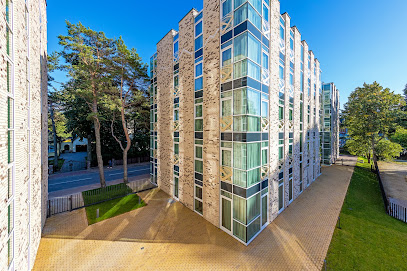
Unmissable attractions to see
Palanga Pier
Discover the enchanting Palanga Pier, a stunning bridge offering spectacular views of the Baltic Sea and unforgettable sunsets in Lithuania.
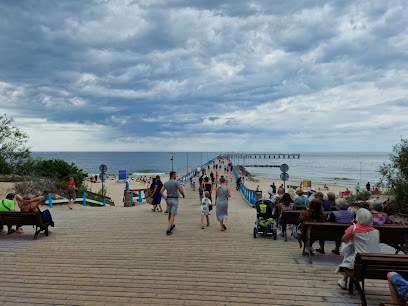
Palanga sahili
Discover the enchanting beauty of Palanga Beach in Lithuania, where sun-soaked sands meet the refreshing waters of the Baltic Sea, perfect for a relaxing getaway.
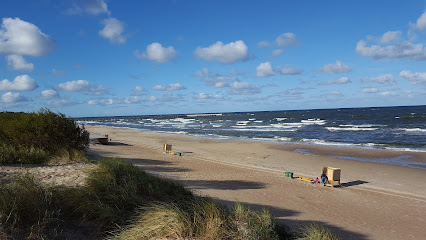
Tyszkiewicz alley
Experience the enchanting charm of Tyszkiewicz Alley in Palanga, Lithuania, where culture, cuisine, and coastal beauty converge in a vibrant tourist destination.
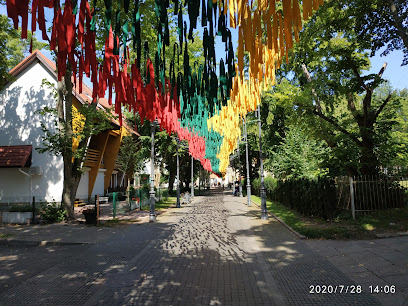
Illusive House Eureka
Explore the wonders of Illusive House Eureka in Palanga, where puzzles, mazes, and interactive exhibits create an unforgettable adventure for all ages.
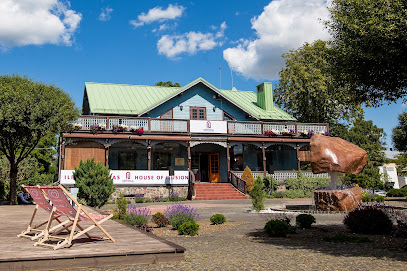
Interactive Lithuanian fairy tale park
Explore the enchanting Interactive Lithuanian Fairy Tale Park in Palanga, where folklore and creativity come to life amidst beautiful landscapes.
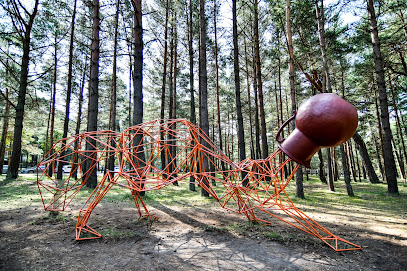
Palanga central square
Experience the vibrant heart of Palanga at the Central Square, where culture, nature, and community come together in perfect harmony.
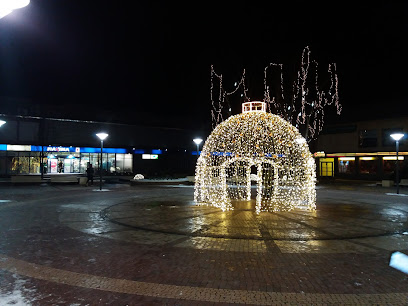
Palangos vasaros parkas
Discover the excitement of Palangos vasaros parkas, a premier amusement park in Palanga, Lithuania, perfect for families and adventure seekers.
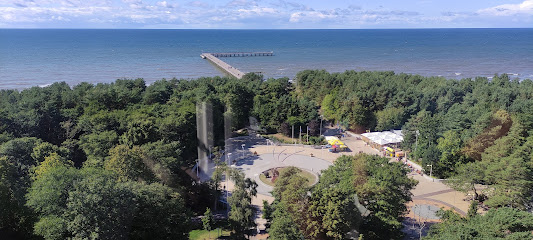
Vandenlenčių parkas Wakepark Palanga
Discover the ultimate water adventure at Vandenlenčių parkas Wakepark Palanga, where excitement meets relaxation in a stunning natural setting.
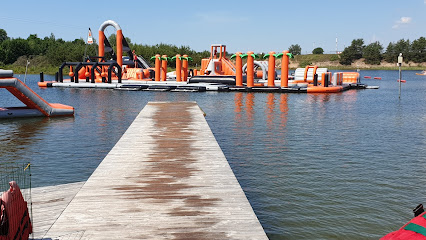
Palanga Resort Museum
Explore the rich cultural history of Palanga at the Resort Museum, where art, nature, and heritage intertwine to create a unique visitor experience.
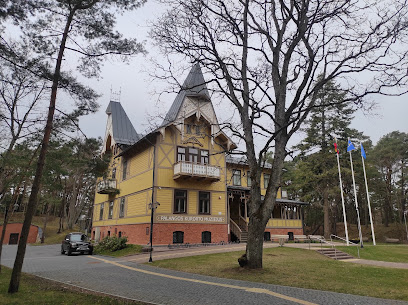
Sculpture Park
Experience the beauty of art in nature at Sculpture Park, Palanga – an inspiring open-air museum filled with captivating sculptures.
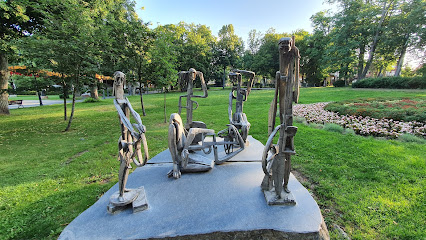
Trampoline park
Discover thrilling fun at the Trampoline Park in Palanga, a vibrant destination for jumping, laughter, and unforgettable experiences for all ages.
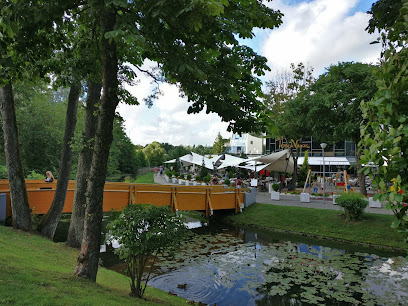
Naglis Hill
Discover the serene beauty of Naglis Hill in Palanga, Lithuania, where nature's charm meets stunning views and tranquil walking paths.
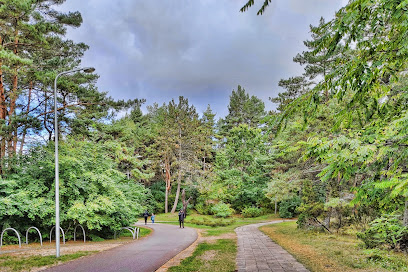
Palanga Iver icon of the Mother of God Church
Discover the tranquil beauty and rich history of Palanga Iver Icon of the Mother of God Church, a spiritual gem by the Baltic Sea.
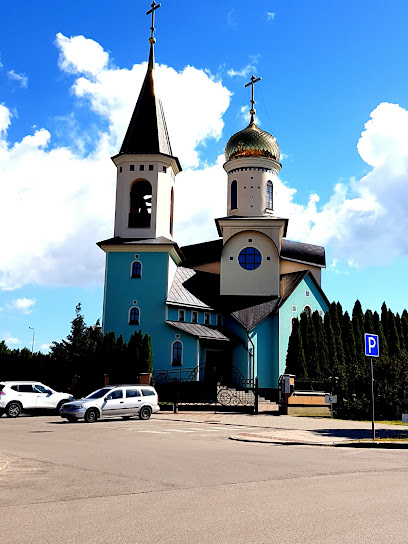
Palanga's Burgmister Jonas Šliūpas museum
Explore the rich history of Palanga at Burgmister Jonas Šliūpas Museum, a captivating cultural experience for tourists and history lovers.
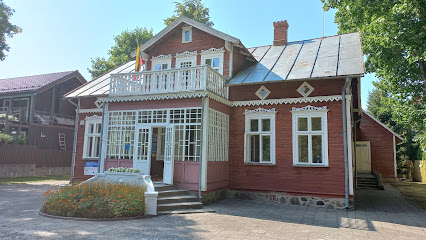
Palangos muzikinis fontanas
Discover the magical Palangos muzikinis fontanas, where music, water, and lights create an unforgettable evening experience in Palanga, Lithuania.
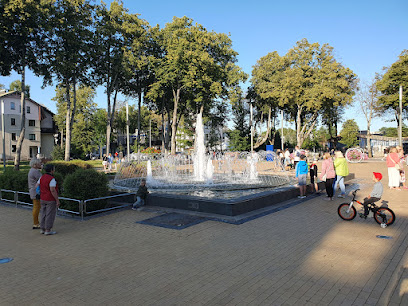
Essential places to dine
A-petit
Experience authentic Lithuanian cuisine at A-petit, where fresh ingredients meet culinary excellence in the heart of Palanga.
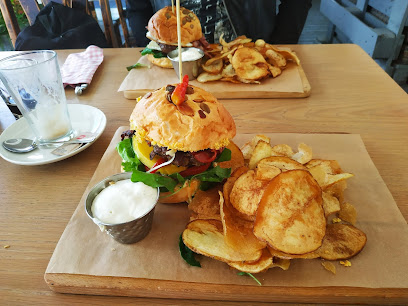
Floros Simfonija
Discover the essence of Lithuanian cuisine at Floros Simfonija in Palanga – where tradition meets modernity in every dish.
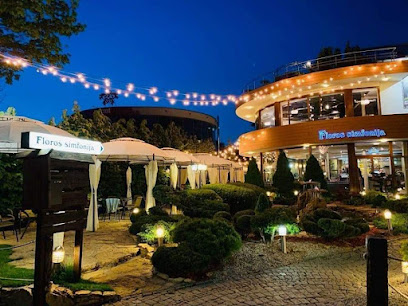
deCuba
Experience exquisite dining at deCuba in Palanga, where traditional flavors meet modern culinary artistry.
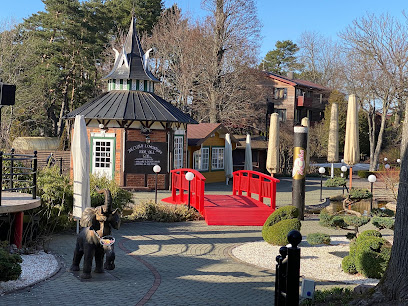
Šilelis GastroPub
Experience vibrant dining at Šilelis GastroPub in Palanga—where local flavors meet international cuisine in a lively atmosphere.
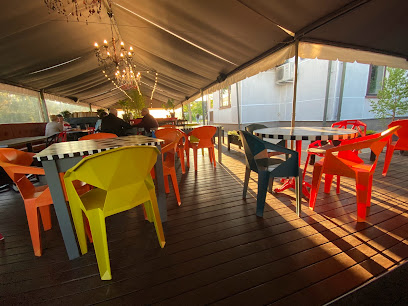
Restoranas Žuvinė
Discover the best seafood dining in Palanga at Restoranas Žuvinė – where fresh ingredients meet culinary artistry.
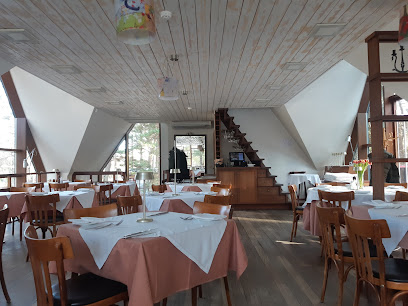
Resort Pub
Discover vibrant dining at Resort Pub in Palanga – enjoy local flavors and lively ambiance by the beautiful Baltic coast.
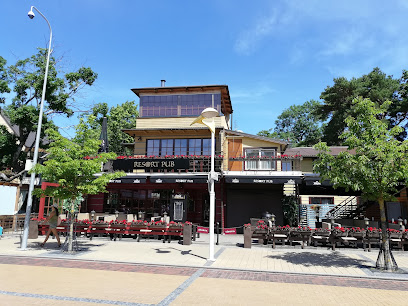
OLDMAN Palanga
Discover OLD MAN Palanga: A vibrant restaurant and bar offering delightful cuisine and drinks in a charming seaside town.
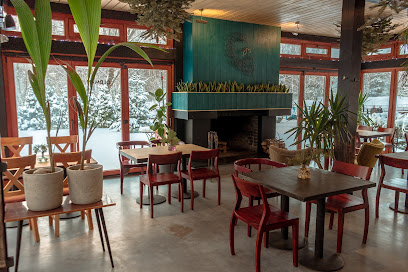
Restoranas 1925
Experience exceptional dining at Restoranas 1925 in Palanga - where local flavors meet international cuisine in a warm atmosphere.
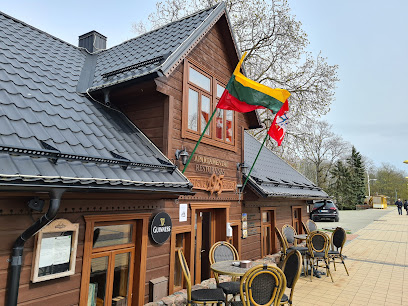
Pajurio zibintas
Savor authentic Lithuanian cuisine at Pajurio Zibintas in Palanga - a culinary journey through traditional flavors and warm hospitality.
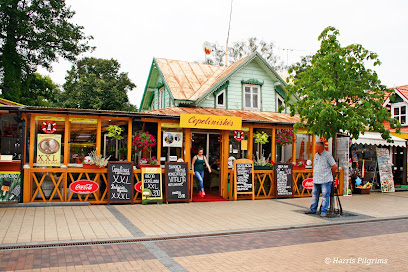
Meatbusters Palanga
Discover delightful meat dishes at Meatbusters Palanga – where local flavors meet casual dining on Lithuania's stunning coast.
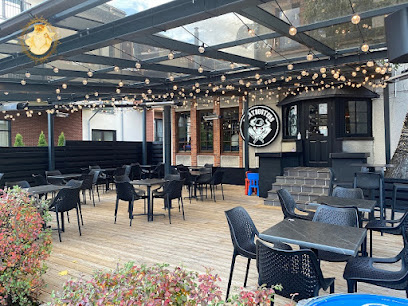
Exit Terasa
Experience authentic Lithuanian cuisine at Exit Terasa in Palanga, where local flavors meet modern dining in an enchanting coastal setting.
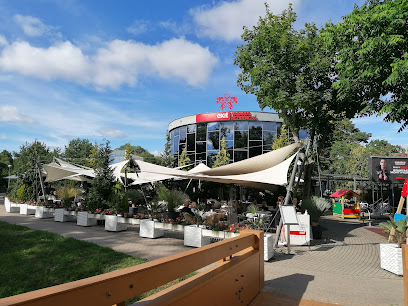
Monika, kavine, Ambro-art
Discover the flavors of Lithuania at Monika, Kavine, Ambro-Art in Palanga – where tradition meets taste in a cozy setting.
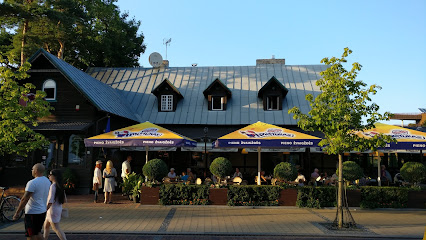
Ship pub Palanga
Experience authentic Lithuanian cuisine in a charming nautical setting at Ship Pub Palanga - where every meal is a seaside adventure.
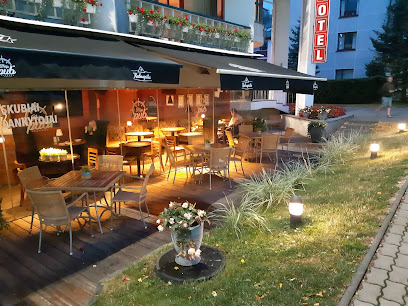
Vaidilutė
Experience the vibrant fusion of delectable cuisine and live music at Vaidilutė in Palanga – a must-visit for every traveler!
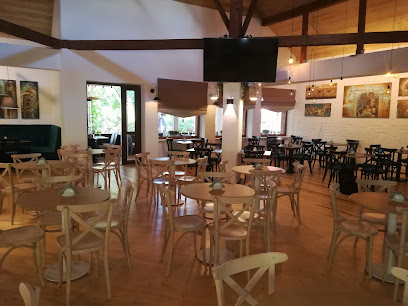
GILI
Experience exquisite dining at GILI in Palanga—where traditional flavors meet modern culinary innovation.
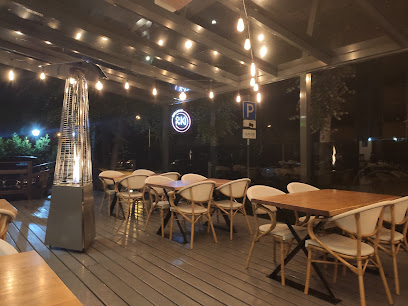
Markets, malls and hidden boutiques
Pedestrian Shopping Street
Experience the lively atmosphere of Palanga's Pedestrian Shopping Street, a vibrant shopping and dining hub brimming with local culture and charm.
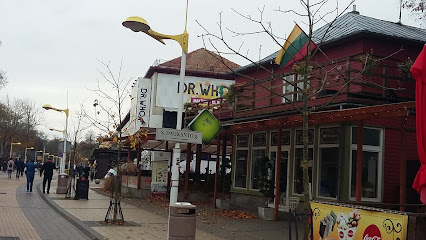
SOLA
Discover the chic essence of Palanga at SOLA, where trendy women's fashion meets local charm in a stylish shopping experience.
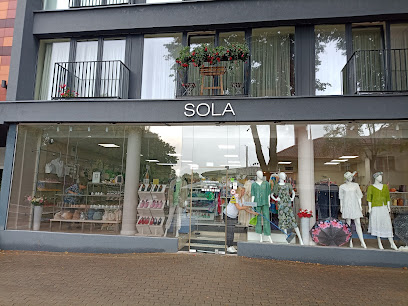
Happeak Palanga
Explore the fashion-forward offerings at Happeak Palanga, where local charm meets contemporary style for an unforgettable shopping experience.
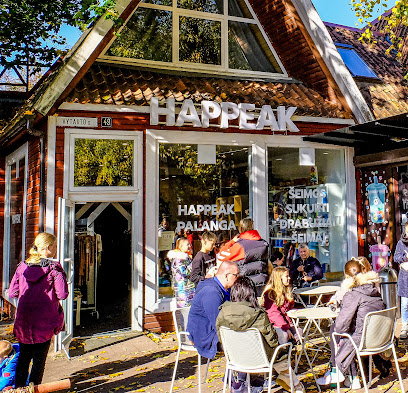
GIEVERA
Discover GIEVERA in Palanga, Lithuania – your ultimate destination for stylish handbags, cosmetics, and perfumes in a vibrant shopping atmosphere.
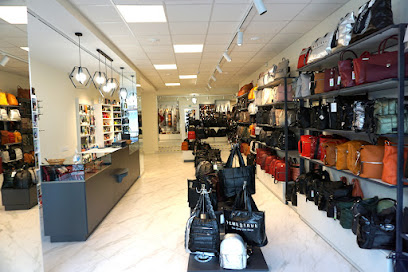
Antikvariatas Palangoje, ANTIKvaras Palanga
Explore the rich history and unique charm of Antikvariatas Palangoje, your go-to destination for antique treasures in the heart of Lithuania.
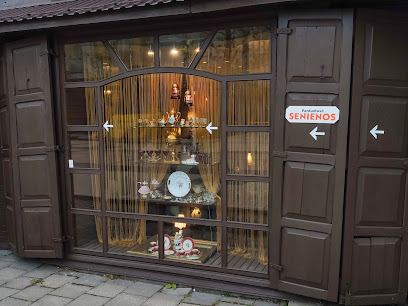
Wholesale and retail trade of household chemistry
Discover essential household products in Palanga's top home improvement store, blending quality with local charm for a perfect shopping experience.
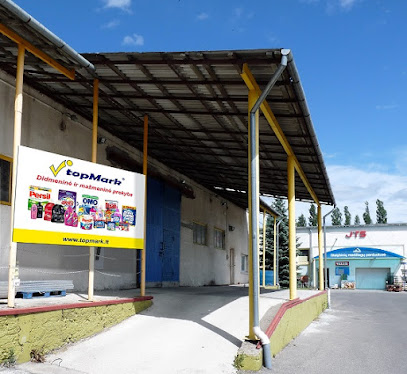
Outshop.lt
Explore Outshop.lt in Palanga for unique fashion accessories that elevate your style and capture the essence of Lithuania's vibrant seaside culture.
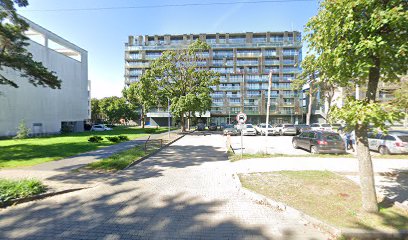
Divo, parduotuve, Basik
Explore Divo in Palanga for a unique selection of stylish and durable boots perfect for your travel adventures along the beautiful Baltic coast.
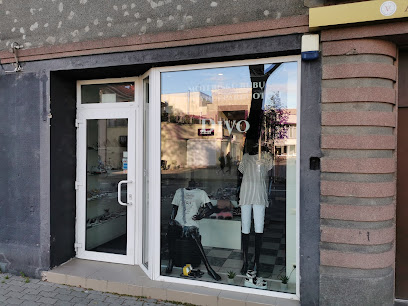
Pitliaus skanestai, firmine parduotuve, Pitlius
Experience the sweet side of Lithuania at Pitliaus Skanestai, Palanga's beloved store for traditional desserts and authentic flavors.
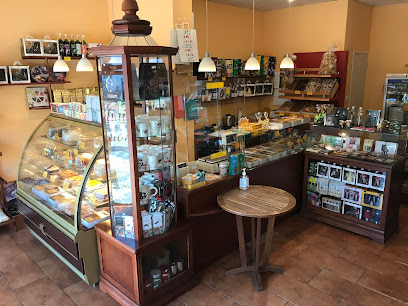
Vilnis ir Baltijos gintarai
Explore the exquisite world of Baltic amber jewelry at Vilnis ir Baltijos gintarai in Palanga, where nature meets craftsmanship.
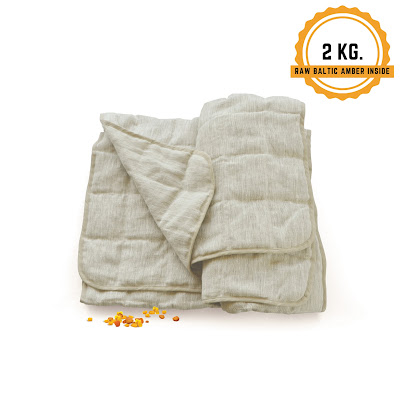
5 dovanos
Discover unique gifts and local treasures at 5 Dovanos, the top gift shop in Palanga. Perfect for tourists seeking memorable souvenirs.
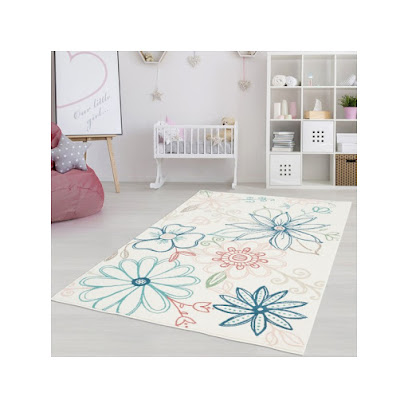
Nojurtė
Explore Nojurtė, Palanga's premier clothing store offering unique fashion pieces and local designer finds in a welcoming atmosphere.
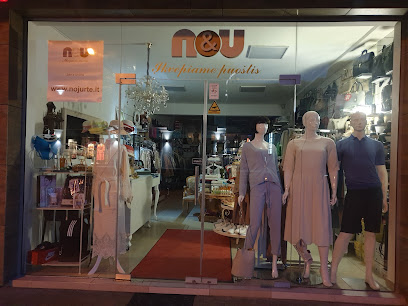
Samana Samana KŪRYBOS IR DIZAINO NAMAI
Explore the creativity of Lithuania at Samana Samana KŪRYBOS IR DIZAINO NAMAI, where local art and unique design come together in Palanga.
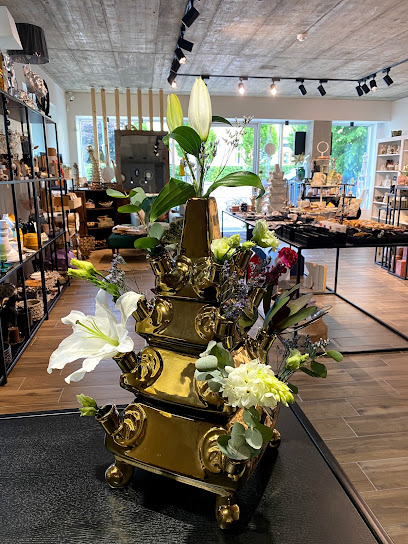
Lelevi Boutique
Discover unique fashion at Lelevi Boutique, a charming clothing store in Palanga offering stylish apparel and accessories for every occasion.
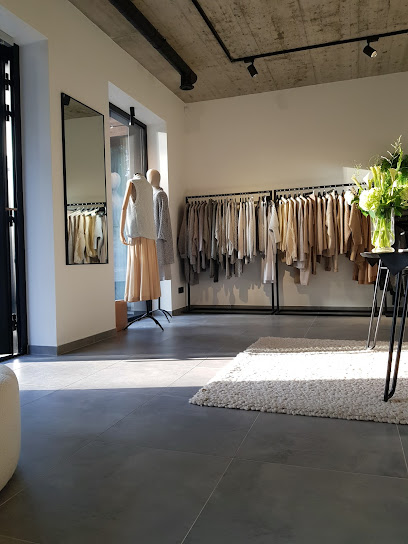
Notra-avalynė, drabužiai, rankinės, aksesuarai.
Explore Notra-avalynė for unique clothing, handbags, and accessories in the heart of Palanga, showcasing Lithuanian fashion at its best.
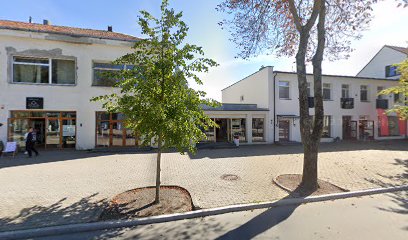
Essential bars & hidden hideouts
Šilelis GastroPub
Discover the vibrant culinary scene of Palanga at Šilelis GastroPub, where local flavors meet international flair in a cozy atmosphere.
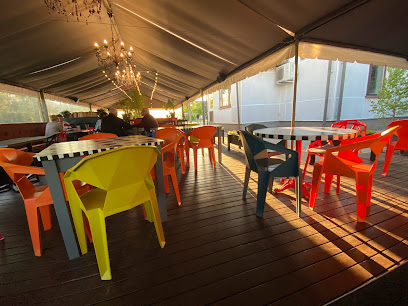
Resort Pub
Discover the vibrant atmosphere of Resort Pub in Palanga, offering delicious local cuisine and a wide variety of drinks for an unforgettable dining experience.
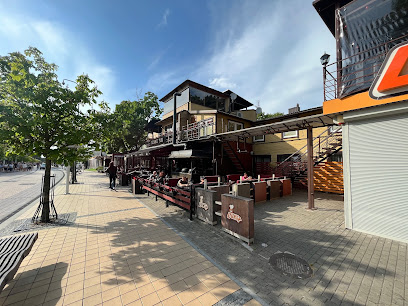
OLDMAN Palanga
Enjoy a delightful mix of local cuisine and refreshing drinks at OLD MAN Palanga, a vibrant bar and restaurant in the heart of Palanga.
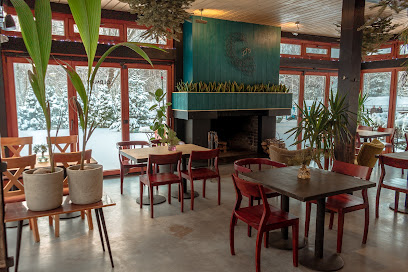
Meatbusters Palanga
Experience the culinary delights of Meatbusters Palanga, where quality meets creativity in a vibrant gastropub atmosphere.
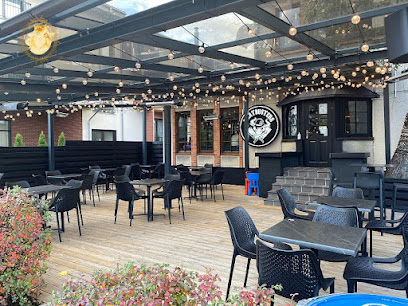
Ship pub Palanga
Discover the vibrant flavors of Lithuania at Ship Pub Palanga, where tradition meets lively atmosphere in this must-visit coastal gem.
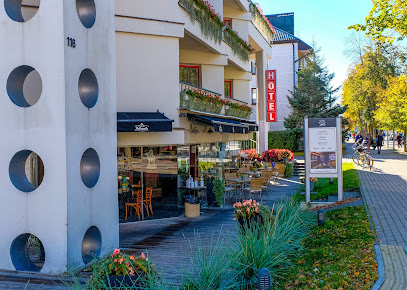
VILA GRAŽINA muzikinis baras Palangoje
Discover Vila Gražina, Palanga's premier live music bar, offering an unforgettable night of local flavors, great vibes, and electrifying performances.
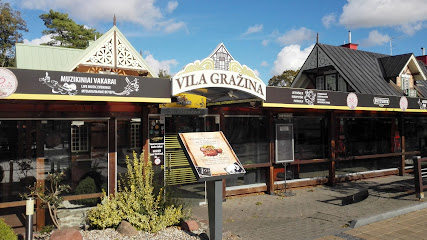
7777
Experience the vibrant nightlife and stunning coastal views at 7777 Bar in Palanga, the perfect spot for food, drinks, and relaxation.
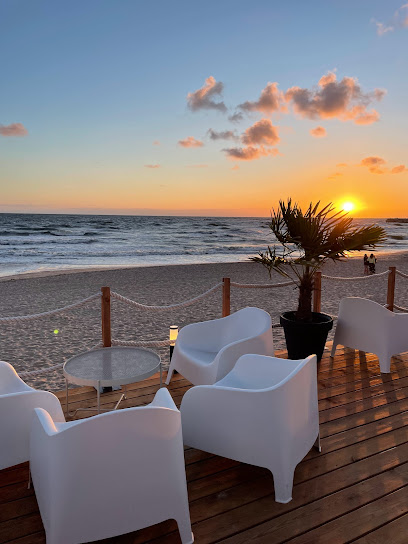
Oldman Parkas - I love Palanga
Discover Oldman Parkas in Palanga, where live music, delicious food, and outdoor cinema create an unforgettable experience.
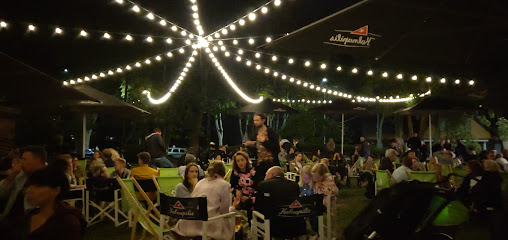
Basanavičiaus kiemelis
Experience the vibrant atmosphere of Basanavičiaus Kiemelis, a bar & grill in Palanga offering delicious food and drinks in a charming setting.
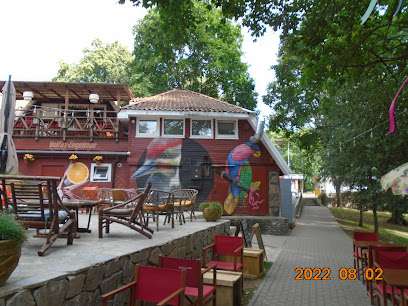
Sun & Moon Beach Bar
Experience the vibrant energy of Sun & Moon Beach Bar in Palanga, where great drinks meet stunning Baltic Sea views for an unforgettable seaside escape.
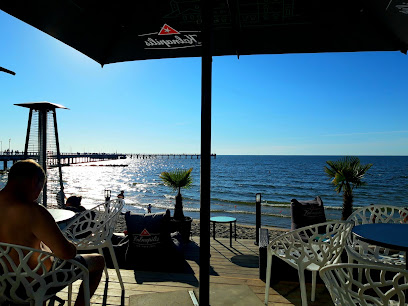
Sun & Moon Beach House
Experience the perfect blend of relaxation and vibrancy at Sun & Moon Beach House in Palanga, where every sunset is a celebration.
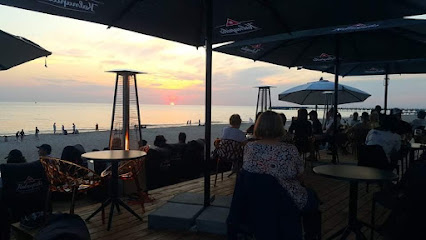
11B baras
Discover the lively atmosphere of 11B Baras, a must-visit bar in Palanga, offering a blend of local drinks and vibrant nightlife.
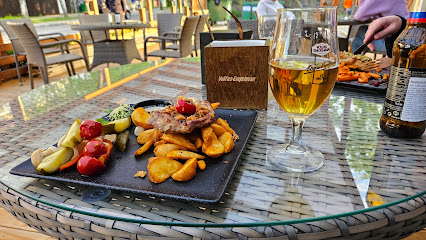
Malibu Lounge
Discover the vibrant nightlife at Malibu Lounge in Palanga - where lively music meets refreshing drinks in a welcoming atmosphere.
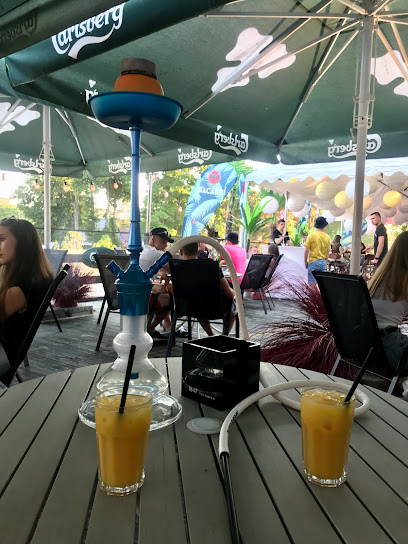
Didriestainiai
Experience the vibrant atmosphere of Didriestainiai, a hidden bar gem in Palanga, offering exquisite drinks and warm hospitality.
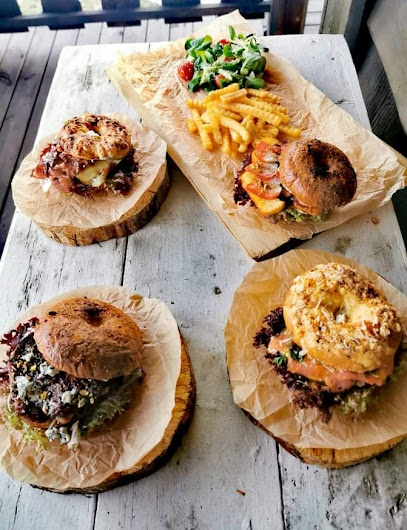
Local Phrases about Palanga Beach
-
- HelloLabas
[la-bas] - GoodbyeViso gero
[vee-so ge-ro] - YesTaip
[taip] - NoNe
[ne] - Please/You're welcomePrašau
[pra-shau] - Thank youAčiū
[a-chiu] - Excuse me/SorryAtsiprašau
[at-si-pra-shau] - How are you?Kaip gyveni?
[kai-p gye-ve-ni] - Fine. And you?Gerai. O tu?
[ge-rai. o tu] - Do you speak English?Ar kalbate anglų kalba?
[ar kal-ba-te ang-lu kal-ba] - I don't understandAš nesuprantu
[a-sh ne-su-pran-tu]
- HelloLabas
-
- I'd like to see the menu, pleaseNorėčiau pamatyti meniu, prašau
[no-re-chiau pa-ma-ti-ti me-niu, pra-shau] - I don't eat meatAš nevalgau mėsos
[a-sh ne-val-gau me-so] - Cheers!Į sveikatą!
[i svei-ka-ta] - I would like to pay, pleaseNorėčiau sumokėti, prašau
[no-re-chiau su-mo-ke-ti, pra-shau]
- I'd like to see the menu, pleaseNorėčiau pamatyti meniu, prašau
-
- Help!Pagalba!
[pa-gal-ba] - Go away!Išeik!
[i-sheik] - Call the Police!Pakvieskite policiją!
[pak-vies-ki-te po-li-tsi-ja] - Call a doctor!Pakvieskite gydytoją!
[pak-vies-ki-te gy-dy-to-ya] - I'm lostAš pasiklydau
[a-sh pa-sik-lu-da-u] - I'm illAš sergu
[a-sh ser-gu]
- Help!Pagalba!
-
- I'd like to buy...Norėčiau pirkti...
[no-re-chiau pir-kti] - I'm just lookingAš tik žiūriu
[a-sh tik ziu-riu] - How much is it?Kiek tai kainuoja?
[kiek tai ka-i-nuo-ya] - That's too expensiveTai per brangu
[tai per bran-gu] - Can you lower the price?Ar galite sumažinti kainą?
[ar ga-li-te su-ma-zin-ti kai-na]
- I'd like to buy...Norėčiau pirkti...
-
- What time is it?Kiek valandų?
[kiek va-lan-du] - It's one o'clockYra viena valanda
[yra vie-na va-lan-da] - Half past (10)Pusė (10)
[pu-se (10)] - MorningRytas
[ri-tas] - AfternoonPopietė
[po-pie-te] - EveningVakaras
[va-ka-ras] - YesterdayVakar
[va-kar] - TodayŠiandien
[shian-dien] - TomorrowRytoj
[ri-toi] - 1Vienas
[vie-nas] - 2Du
[du] - 3Trys
[tris] - 4Keturi
[ke-tu-ri] - 5Penki
[pen-ki] - 6Šeši
[she-shi] - 7Septyni
[sep-ty-ni] - 8Aštuoni
[ash-tuo-ni] - 9Devyni
[de-vy-ni] - 10Dešimt
[de-shimt]
- What time is it?Kiek valandų?
-
- Where's a/the...?Kur yra...?
[kur yra] - What's the address?Koks adresas?
[kok-sa-dre-sas] - Can you show me (on the map)?Ar galite man parodyti (žemėlapyje)?
[ar ga-li-te man pa-ro-dy-ti (ze-me-la-pi-ye)] - When's the next (bus)?Kada bus kitas (autobusas)?
[ka-da bus ki-tas (au-to-bu-sas)] - A ticket (to ....)Bilietas (į ....)
[bi-lietas (i)]
- Where's a/the...?Kur yra...?
History of Palanga Beach
-
Palanga Beach has been a vital location for human settlement since ancient times. Archaeological findings suggest that the area was inhabited by the Curonians, a Baltic tribe, as early as 1000 BCE. These early settlers were known for their seafaring skills, fishing, and trading amber, which played a significant role in the local economy and culture.
-
During the medieval period, Palanga was part of the Grand Duchy of Lithuania. In the 13th century, the region experienced frequent conflicts with the Teutonic Order, a crusading military order. The Teutonic Knights sought to control the Baltic Sea coast, but the Grand Duchy of Lithuania successfully resisted their advances, ensuring that Palanga remained under Lithuanian control.
-
In the 16th century, the Sapieha family, one of the most influential noble families in Lithuania, acquired Palanga. They played a significant role in the development of the town, promoting trade and building infrastructure. The Sapiehas also constructed a manor, which became a cultural and political hub in the region.
-
Following the partitions of the Polish-Lithuanian Commonwealth in the late 18th century, Palanga became part of the Russian Empire. In the 19th century, the town began to evolve into a popular seaside resort. The construction of a pier in 1884 and the establishment of a railway connection to other parts of the empire facilitated the growth of tourism. The Count Tyszkiewicz family, who owned the manor at the time, were instrumental in promoting Palanga as a fashionable destination for the Russian aristocracy.
-
After World War I and the subsequent independence of Lithuania in 1918, Palanga gained prominence as a national resort. The Lithuanian government invested in developing the town’s infrastructure, including hotels, parks, and sanatoriums. The Palanga Botanical Park, established in the 1920s, became a notable attraction, featuring a diverse collection of plants and the Tyszkiewicz Palace, which now houses the Palanga Amber Museum.
-
During the Soviet occupation of Lithuania from 1940 to 1990, Palanga continued to develop as a major resort destination. The Soviet authorities built numerous sanatoriums and recreational facilities, making it a popular vacation spot for citizens from across the USSR. After Lithuania regained its independence in 1990, Palanga underwent significant modernization, while preserving its historical and cultural heritage. Today, it remains one of Lithuania’s most beloved seaside resorts, attracting visitors from around the world.
Palanga Beach Essentials
-
Palanga is located on the western coast of Lithuania. The nearest international airport is Palanga International Airport (PLQ), which is about 7 kilometers from the town center. You can also fly into Vilnius International Airport (VNO) or Kaunas Airport (KUN) and take a bus or train to Palanga. The journey from Vilnius takes around 4 hours by bus, while from Kaunas it takes about 3 hours. Direct buses to Palanga are available from major Lithuanian cities and from nearby countries.
-
Palanga is a relatively small town, and many of its attractions are within walking distance. For longer journeys within the town or to nearby areas, taxis are readily available. Bicycle rentals are also popular and offer a scenic way to explore the coastline. Additionally, local buses operate within the town and connect Palanga to nearby cities and villages. Car rentals are available for those looking to explore the region at their own pace.
-
The official currency in Lithuania is the Euro (EUR). Credit and debit cards are widely accepted in hotels, restaurants, and shops in Palanga. ATMs are readily available throughout the town. However, it is advisable to carry some cash for smaller establishments, markets, and when using public transport.
-
Palanga is generally a safe destination for tourists. However, like any other tourist destination, it is wise to take standard precautions. Avoid leaving your belongings unattended on the beach or in crowded areas. Be cautious when walking alone at night, especially in less populated areas. There are no specific high-crime neighborhoods targeting tourists, but staying vigilant and aware of your surroundings is always a good practice.
-
In case of emergency, dial 112 for immediate assistance. This number connects you to emergency services, including police, fire, and medical services. There is a local police station and medical facilities in Palanga. It is recommended to have travel insurance that covers medical emergencies. Pharmacies are available in the town for minor health issues and over-the-counter medications.
-
Fashion: Do wear comfortable and casual clothing suitable for the beach. Don't wear overly revealing clothing when visiting religious sites or local neighborhoods. Religion: Do respect local customs and traditions. When visiting churches, dress modestly and avoid loud behavior. Public Transport: Do be respectful and give up your seat to elderly passengers. Don’t eat or drink on public transport. Greetings: Do greet people with a smile and a handshake. A simple 'Labas' (Hello) is a friendly greeting in Lithuanian. Eating & Drinking: Do try local delicacies and accept food offerings graciously. Don’t refuse hospitality, as it is considered impolite.
-
To experience Palanga like a local, visit the local markets where you can buy fresh produce and traditional Lithuanian goods. Take a stroll along the famous Palanga Pier, especially during sunset, for a breathtaking view. Engage with locals, as they are often friendly and willing to share stories about the town's history and culture. Don’t miss visiting the Palanga Amber Museum, set in the beautiful Palanga Botanical Park. For a unique experience, attend one of the many summer festivals or events held in the town.
Nearby Cities to Palanga Beach
-
Things To Do in Liepaja
-
Things To Do in Kuldiga
-
Things To Do in Šiauliai
-
Things To Do in Ventspils
-
Things To Do in Talsi
-
Things To Do in Jurmala
-
Things To Do in Panevėžys
-
Things To Do in Marijampolė
-
Things To Do in Kaunas
-
Things To Do in Riga
-
Things To Do in Elblag
-
Things To Do in Jonava
-
Things To Do in Sopot
-
Things To Do in Gdansk
-
Things To Do in Suwalki










